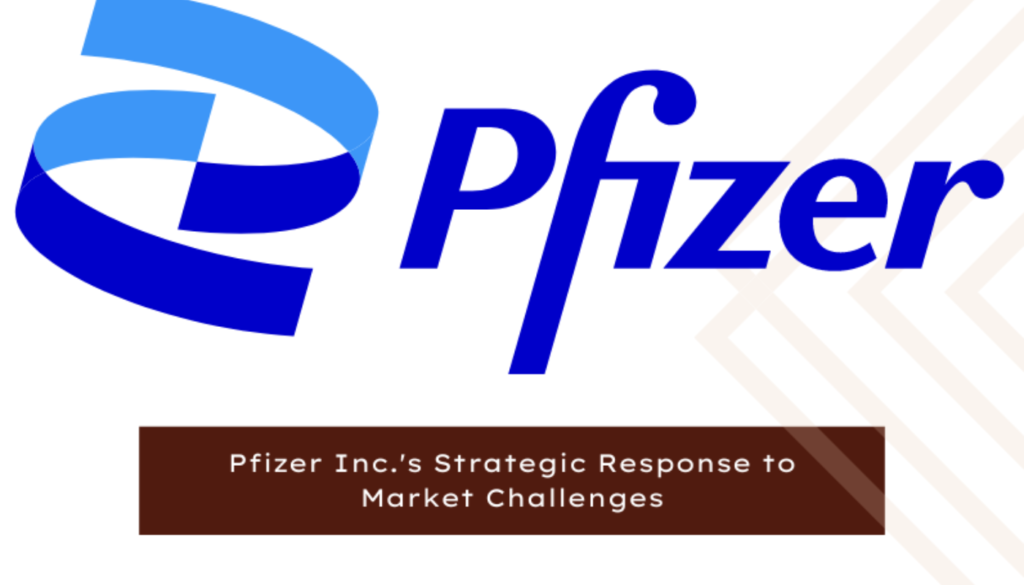Introduction
Pfizer Inc is a multinational pharmaceutical company with its headquarters in New York, United States of America and operates globally in the research, development, manufacture and sales of prescription drugs, vaccines and other health care products meant for both human and animals. Pfizer began its operations in Brooklyn, New York in 1849 and it has expanded to become a global pharmaceutical company that aims to be a leading research based company in the global market through strategic vision and innovation and product differentiation.
Historical Background
Originally established in 1849 as a fine chemicals company by cousins charles Pfizer and Charles Erhart.Pfizer started fermentation to produce citric acid in the year 1880. This made citric acid affordable and created a solid base for Pfizer’s future transformation into a pharmaceutical giant. Pfizer entered antibiotics production at the beginning of the twentieth century and kept on diversifying its product range through mergers, acquisitions, and research. Some key developments include the development of the first synthetic penicillin and Pfizerpen in World War 2, strategic M&A with firms such as Wyeth, Warner-Lambert, Pharmacia, and Anacor that also helped expand the company products portfolio across therapeutic segments. Pfizer is now one of the world’s largest pharmaceutical companies and a dominant innovative player in the pharmaceutical industry having evolved from a small chemical manufacturing business founded over 170 years ago.
Strategic Vision and Leadership
As for Pfizer, its strategic direction involves research and new product development for major patient needs by harnessing advanced science and technologies. Pfizer invests more than $9 billion in R&D annually putting it in a position of being amongst the largest investors in the improvement of pharma. Pfizer also leads in areas of inflammation, immunology, vaccines, oncology, rare diseases, hospitals, and biosimilars. Patented and spearheaded by current CEO Albert Bourla as well as predecessors Ian Reid, and Jeffrey Kinder, Pfizer has established a pipeline of over ninety ongoing projects pioneering the inventive capabilities of its laboratories in the United States, Europe, and Asia.
Product Innovation and Diversification
Strengthening the long-term commitment to be at the cutting edge of science, Pfizer has greatly extended and broadened therapeutic products portfolio to achieve a leadership position. Some of the key areas for innovation are oncology, rare diseases, inflammation, immunology and vaccines where Pfizer boasts a pipeline of blockbuster products such as Ibrance, Inlyta, Vyndaqel, Enbrel, Prevnar 13, among others. To encourage more research and development and to concentrate on the patient’s needs, Pfizer complements internal R&D through value enhancing acquisitions, joint ventures, and minority stakes in innovative players in the broader healthcare industry.
Marketing and Branding
Pfizer has very well known products such as Advil, Robitussin, Centrum, Caltrate, Prevenar 13, and many others. It spends a lot of money on advertising and promoting its brands, finding and executing market penetration and development techniques for its leading brands through various media and advertising techniques. Pfizer directs its commercial operations especially to the key strategic markets that include United States, Europe, China and Japan which contribute most of its sales. Moreover, the company aims at increasing market share of its branded generics to new emergent markets that are seen to have higher prospects for growth. The Company’s portfolio comprises of patented brands and branded generics to meet a broad range of patient segments across the world.
Sustainability and Social Responsibility
The social responsibility that Pfizer has is located in its corporate sustainability strategy that encompasses global health access, packaging sustainability, ethical purchasing, ICT and internal diversity. It is focused on social investments in areas such as income, workforce, health and the environment that are consistent with its role of bringing out innovations to assist patients live healthier lives. Regarding gender diversity, Pfizer reports that the company purchases products and services worth more than $1 billion from women-owned companies, and it has several gender-diversity measures in place globally. In summary, ESG and social responsibility are value-driven and relevant corporate objectives synchronized with Pfizer’s patient-centric orientation and altruistic corporate purpose of meeting essential global health demands.
Financial Performance and Growth
In 2021, it posted over $81bn in sales, up from 2020, mainly driven by demand for its COVID-19 vaccine and antiviral drugs. This is an impressive increase from about $40 billion in revenues in 2020. Net income has also near doubled to $22 billion in 2021. Pfizer’s historical analysis shows that the company has experienced a mid single digit growth in its revenues from the year 2016 to 2020. With a good position combining portfolio of patented products, vibrant pipeline and cost containment message, Pfizer plans to deliver 6% revenue CAGR through 2025. Areas to be addressed to continue the growth trajectory in 2022 and beyond are: Increased focus on the uptake of Paxlovid and Comirnaty, pipeline creation and development, further expansion in China, more gene therapy developments, and an overall enhancement of the rare diseases portfolio, including through M&A.
Challenges and Opportunities Ahead
This outlook reveals that Pfizer is in a world of risk that includes issues to do with patents expiry, price regulation, generic competition and high costs of developing new products. But with a strong pipeline it aims at mitigating revenue erosion resulting from brands that have gone off patent. Moreover, the mRNA technology platform underlying its COVID vaccine also has applicability for creating vaccines for other infectious diseases. In the case of M&A activities, Pfizer aims at sourcing additional innovation through high value strategic acquisitions to enhance its portfolio in the key focus therapeutic areas. Opportunities include expansion of coverage for its brands including portfolio expansion in emerging markets such as China, Asia Pacific, Latin America and Middle East & Africa.
Conclusion
Summing up it is possible to note that today Pfizer presents a clear example of a company with solid business performance which is encouraged by enthusiastic and driven employees providing patients around the world with innovative treatments and vaccines through science and research in the scope of its more than 170 years of existence. Under the effective leadership and with the vision and dedication to innovation, strategic markets commercialization, and purpose and societal impact, Pfizer will be in a good position to sustain its leadership, grow revenues and income at a consistent basis, deliver superior returns to shareholders, and remain an innovative pharma giant that addresses critical patient needs.
Read More articles on The Business Vision






